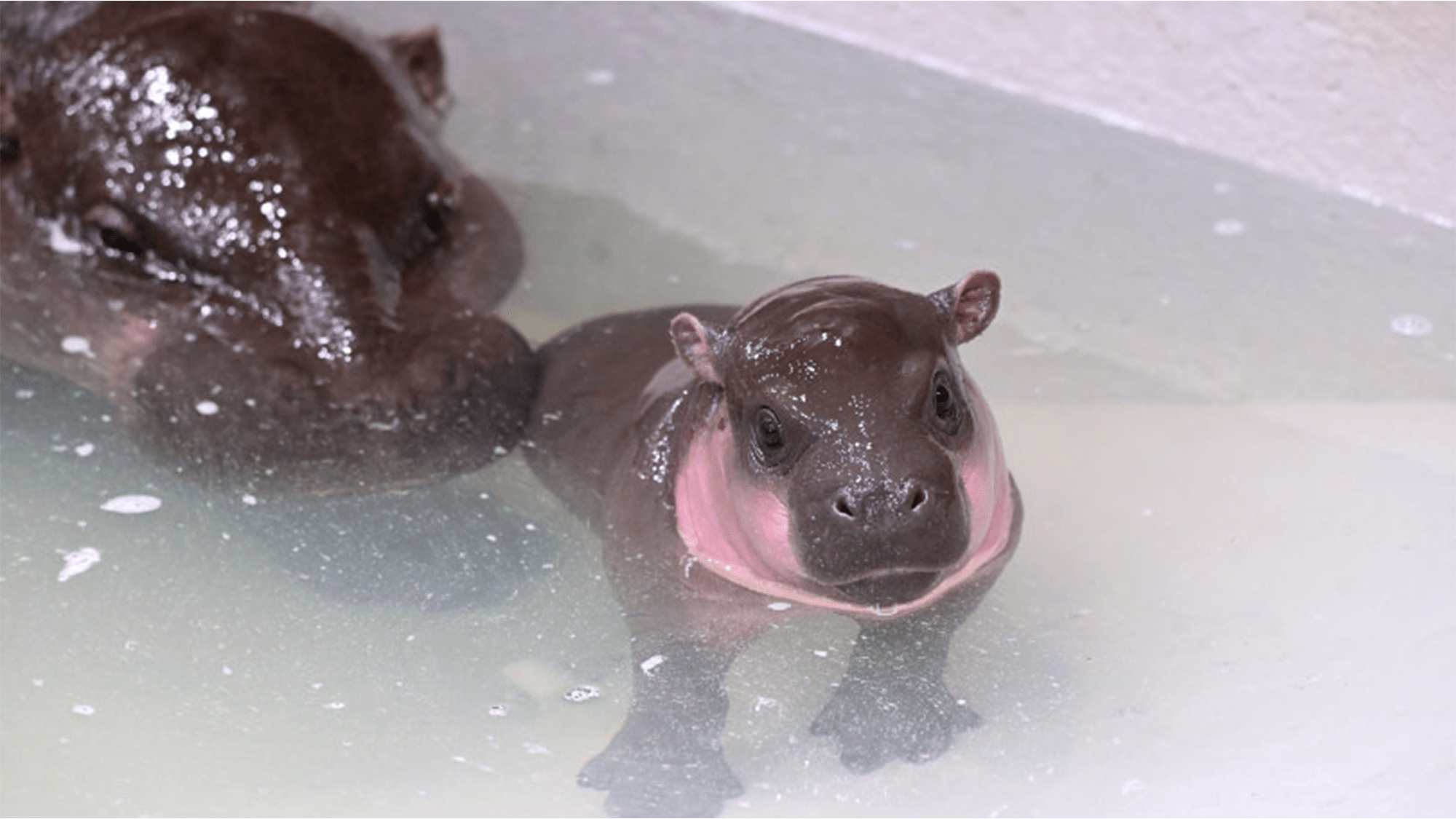It’s only early January, but last year’s baby pygmy hippo mania is staying strong. Thailand’s feisty Moo Deng became a social media sensation in 2024, taking the world by storm with her knee-biting and hose playing antics. Now, pygmy hippo enthusiasts in the United States don’t have to visit Thailand or even hop across the pond to Scotland and visit Haggis to see a new baby pachyderm.
On December 9, 2024, the Metro Richmond Zoo in Mosely, Virginia welcomed a 15-pound female baby pygmy hippo of its own. Whether this new baby will be as big of a ham as Moo Deng, is still too early to call.
After over 116,000 votes from 165 countries, this new bundle of joy’s name was announced live on the TODAY show this morning. Poppy is the winner, with 52.8 percent of the vote.
Poppy was born to parents Iris and Corwan after a 7-month gestation. The baby girl is Iris and Corwin’s third calf in 4.5 years. This birth was also the first time that Iris gave birth underwater. Common hippos typically give birth underwater, but their smaller relatives the pygmy hippo are born on land or in water.
Poppy arrived on December 9 at 4:50 p.m., with several zookeepers and even a few zoo guests present. The baby’s natural instincts kicked in and she started moving around in the water immediately, according to zoo officials.
Poppy splashing in her habitat. CREDIT: Metro Richmond Zoo.
At birth Poppy weighed 15 pounds, but fully grown pygmy hippos can reach up to 600 pounds. They are roughly 10 times smaller than a standard-size hippo, according to the World Wildlife Fund. Despite their stocky size, these large mammals can move fairly quickly. They can run about 18 miles per hour on average, comparable to lizards and humans.
On December 30, Iris and Poppy returned to the indoor pool area and were seen by the general public for the first time. This was the baby’s first time submerged in water since she was born in that very same pool three weeks earlier.

“On the first day, we lowered the water level so the baby could become comfortable with her new surroundings. We have gradually increased the level each day,” the zoo wrote in a statement. “Like a human baby, our little hippo spends her days nursing, sleeping, and pooping, but with one glaring difference–she loves to swim!”
Throughout this winter, Poppy and Iris will stay in the indoor pool area during the day for public viewing. During the evening, they will return to a room full of hay to rest. The zoo plans to move them to their outdoor habitat once the weather is warmer and Poppy has grown a bit more.
[ Related: Humans likely wiped out Cyprus’ tiny hippos and elephants in record time. ]
Pygmy hippos can also be spotted at a few other zoos, including ZooTampa in Florida and the Franklin Park Zoo in Boston, Massachusetts. In the wild, they are native to the forests and swamps of West Africa, primarily in Liberia. They are listed as Endangered, with only an estimated 2,500 remaining in the wild due to habitat loss from logging, minding, and other human activities.
“This birth–like all of Iris’ births–plays an important role in helping protect this rare and elusive species,” the zoo said.


